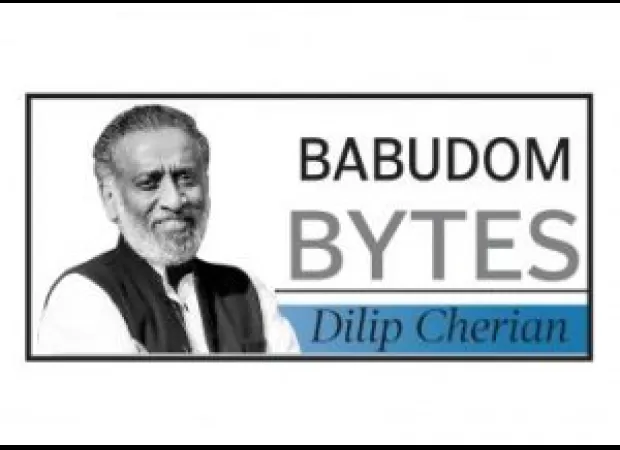CBI gets a new look.
Government's decision to include Indian Revenue Service officers in the Central Bureau of Investigation has caused dissatisfaction among the Indian Police Service ranks, as CBI has traditionally been led by IPS officers.

The recent decision made by the government to introduce Indian Revenue Service (IRS) officers into the Central Bureau of Investigation (CBI) has caused some unease among the ranks of the Indian Police Service (IPS). Traditionally, the CBI has been primarily led by IPS officers or those recruited from the Deputy Superintendent of Police (DSP) level. However, this recent change aims to capitalize on the specialized skills of IRS officers to combat the growing number of financial fraud cases.
The Department of Personnel and Training has recently appointed five IRS officers from the 2014 and 2016 batches to serve as Superintendents of Police in the CBI for a period of five years. The rationale behind this decision is clear - with an increase in economic offenses, the CBI requires personnel with a strong understanding of financial matters. IRS officers, with their expertise in handling complex tax and financial issues, are deemed as the most suitable candidates for this task.
Furthermore, an IRS officer from the 2017 batch, Vijendra Kumar, who was already serving as a Deputy Inspector General in the CBI, had his tenure extended by another year. This move further demonstrates the government's commitment to integrating the specialized skills of IRS officers into the CBI's operations.
However, this decision has not been well-received by the IPS lobby, who see it as an intrusion into their traditional area of work. While any protests are currently being kept at a minimum, there have been murmurs suggesting that the IPS is worried about the IRS gaining a foothold in agencies such as the Enforcement Directorate and the Serious Fraud Investigation Office. For the IPS, this could potentially mean fewer opportunities in top investigative agencies - a hard pill to swallow for a service that prides itself on its role in maintaining law and order.
The Centre's recent decision to cancel advertisements for lateral entry of 45 officers at the Joint Secretary, Director, and Deputy Secretary levels has brought to light the growing tension within the ruling coalition. Under pressure from allies like the Janata Dal and Lok Janshakti Party, as well as a resurgent Opposition, the government has urged the Union Public Service Commission to withdraw the advertisement. This move was prompted by concerns over reservation norms and the need to ensure social equity.
The lateral entry scheme, introduced by the Modi government in 2018, aimed to bring private sector talent into government roles. However, the initiative has faced significant challenges, particularly in terms of reservations for SC, ST, and OBC communities. This issue has been met with criticism not just from the opposition, but also from within the NDA itself. The first batch of lateral entrants, recruited in 2019, has seen several high-profile exits, raising doubts about the effectiveness of the scheme. Despite these setbacks, five lateral entrants continue to serve, but the future of the program remains uncertain.
With policy changes happening frequently, Prime Minister Modi may need to pause and reassess the changing political landscape. In a coalition government, balancing the demands of allies while pursuing reforms is a delicate task, and recent events suggest that the Modi government is feeling the pressure.
A recent order from the Telangana Director General of Police's office has sparked debate and criticism among various cadres. The directive instructs around 16 IPS officers, who are currently awaiting posting orders, to sign in and out of an attendance register in the officer's waiting room each day. They are also required to be on standby for any urgent assignments from the DGP. This order has been met with surprise and disapproval, especially from IPS officers from other states.
Many see this as not only unprecedented but also damaging to the morale and dignity of the officers involved. While adherence to rules is important, an overly bureaucratic approach can hinder problem-solving in complex situations, according to some. The concern is that this new order reflects a lack of trust, which could potentially disrupt the smooth functioning of the police force. However, it seems that the state DGP felt compelled to issue this order due to practical concerns. Reports suggest that many APO officers were residing in Hyderabad instead of being stationed at their designated headquarters, raising concerns about their availability for duty. While some believe there could have been better ways to address this issue, such as advising officers to stay at the IPS guest house in Vijayawada, the chosen approach has still drawn significant criticism.






